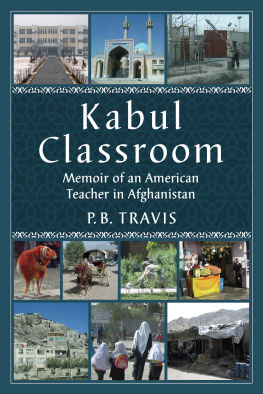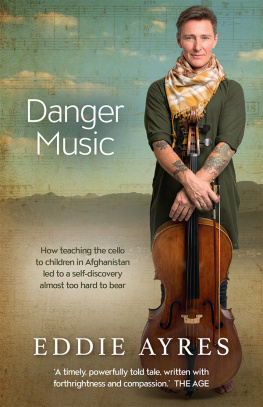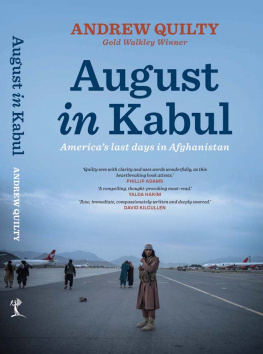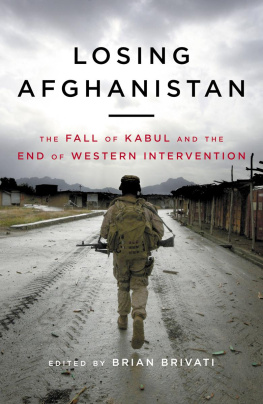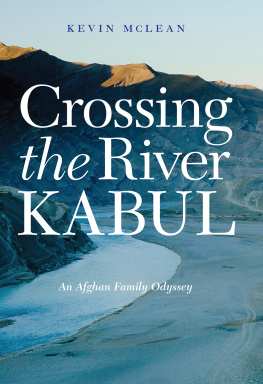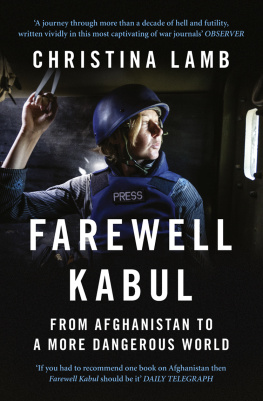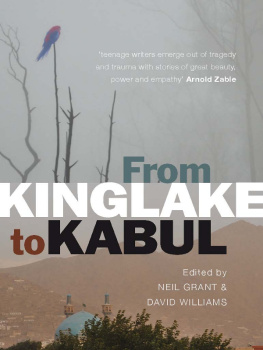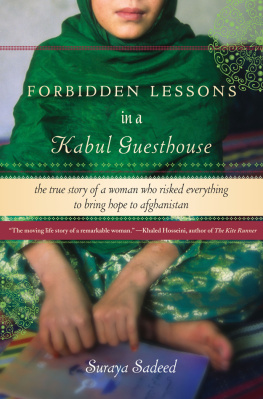
Kabul Classroom
Memoir of an American Teacher in Afghanistan
P. B. TRAVIS

McFarland & Company, Inc., Publishers
Jefferson, North Carolina
ACKNOWLEDGMENTS: I would like to give thanks to my friend Joanna; without her gentle nagging this memoir would never have been started. To my readers, for their thoughtful comments and suggestions. To my sister, Jo, for her encouragement. And to my son, Jason, for being such a good guy.
LIBRARY OF CONGRESS CATALOGUING DATA ARE AVAILABLE
BRITISH LIBRARY CATALOGUING DATA ARE AVAILABLE
e-ISBN: 978-1-4766-0623-1
2014 P. B. Travis. All rights reserved
No part of this book may be reproduced or transmitted in any form or by any means, electronic or mechanical, including photocopying or recording, or by any information storage and retrieval system, without permission in writing from the publisher.
On the cover: (left to right, top to bottom) AUAF campus; Friday Mosque in Herat; at school, a gate and a greeter, with a gun; sacrificial ram in the Eid Festival; horse and buggy; gardeners; items for sale; hillside homes; schoolgirls; shops (all photographs by the author)
McFarland & Company, Inc., Publishers
Box 611, Jefferson, North Carolina 28640
www.mcfarlandpub.com
The words of St. Pauls First Letter to the Corinthians floated into my consciousness. They are about the longing to be seen fully for who one is:
For now we see through a glass, darkly; but then face to face: now I know in part; then shall I know, even as also I am known [Corinthians 13:12].
That is what feels missing in a veiled world, or at least for someone who comes to it unveiled.
Alissa J. Rubin, Kabul bureau chief, New York Times; My First Afghan Burka, May 5, 2011
Preface
In the spring of 2009, at the grand age of 60-something, I realized I was not going to live forever. If I wanted to do great things, I had better get started.
I was thinking about saving the world. I could see myself tramping through the wilds, passing out books to the literature-starved populace, dispensing wisdom and demonstrating the American way as I went. And I wanted somewhere rugged and fierce: Somewhere different.
I had lived in England and Australia for several years, but they hardly counted as being particularly rugged or fierce. And they werent particularly different. English (more or less) was the spoken language in both those countries, and alcohol, while not encouraged, perhaps, was not banned.
Afghanistan was always on the list of places to visit and high on the list for being rugged and fierce. After 9/11, I read more and more about the country and the problems it was havingparticularly the problems of its women and their children.
The tipping point was a rug show I visited in May of 2009, where rugs made by Afghan women were sold, and I heard the stories of the women and their lives. I was hooked. I wanted to go.
That week I went online, found a job in Kabul, applied and was hired. (I suspect my application was the only one received.)
After rearranging my life and questioning my sanity, I was on my way to a rugged and fierce country to teach science at the American University of Afghanistan. And I was going to a war zone. I knew that before I went. I was advised of safety issues and of the security that the university provided for its staff of internationals. But I, in my delirium on the edge of a dream, paid no attention.
I was to find out that life with the threat of kidnapping and bombings was not so easy. No mingling, I was told; no wandering around the market or stopping by a caf for a cup of coffee. Travel to and from the city of Kabul was in a security van and my photographs of the streets were taken through the windows of that van. Many of those pictures were posted on my blog (http://adventureinadfghanistan.blogspot.com).
I didnt make much progress saving the world in Kabul but I did have a chance to live in a country and meet a people who really deserve better.
1
On My Way
Next time you hear from me.... (Email to a friend, August 22, 2009)
My son Jason drove me to the airport, helped with my bags and sat with me in the bar while I waited for the plane. Then we hugged and he left. I sat there fiddling with my new laptop and tried to remain calm.
Omigod.
Im going to Afghanistan.
Omigod.
My rising panic was interrupted, however, when Jason reappeared. He loved me, he said, and he was proud of me, and then he added, I just wanted to give you a chance to change your mind.
Perfect. I have a great son.
No, dear, Im good. Im going, and thanks.
So we sat together again and played with my laptop. Eventually he left for home and I was truly on my own. My adventure had begun.
I was contemplating retirement a few years earlier and thinking about what I was going to do next. I wanted to go somewhere remote and exotic. Do something important. Make a difference.
Then came 9/11 and Afghanistan was in the news. Afghanistan had been in my folder of remote exotic places for a long time. And from what I had read and seen of the country, it was certainly rugged. Kipling wrote in The Young British Soldier,
When youre wounded and left on Afghanistans plains
And the women come out to cut up what remains
Jest roll on your rifle an blow out your brains
An go to your Gawd like a soldier.
Thats fierce, I thought.
A plan was being birthed.
While not committing to anything yetstill not retiredI decided to at least learn the language of Afghanistan, just in case. My first move was to find out what language that was.
Much to my chagrin, I learned there is no one language spoken in Afghanistan. In fact, according to the CIA World Factbook, there are more than thirty languages spoken there and none of those languages is called Afghanistani.
Most Afghans speak Dari (50 percent) or Pashto (35 percent) and I read that a small (very small) group speaks Arabic, which happened to be taught in my hometown of Charleston, South Carolina.
So for two years I studied Arabic and I semi-retired. Then in April of 2009 I read about an upcoming rug show by Arzu Rugsa not-for-profit organization whose mission is to provide sustainable income to Afghan women by sourcing and selling the rugs they weave. Education of the women and their children is part of the program.
I went to the show.
The rugs were gorgeous, of course, but also displayed were pictures of the women weavers and their children and the countryside. And then there were the stories.
One woman finally earned enough to buy a veil; in her village, without a veil, she could not leave the house. I asked about the men. How supportive were they? What did they think about their wives and children attending school? The response was one I heard over and over again. The men (as well as the women) wanted better lives for their children and they realized it was only possible through education. The name Arzu means hope in Dari.
It was a sales pitch. I knew Arzu was trying to sell rugs, but it sold me on Afghanistan.
That night I went to my regularly-scheduled poker game, but the hook was in and I started thinking. If I wanted to go, so went the internal dialogue, just when was that going to happen? (Id had this sort of conversation with myself more than once in my life the last time being when I started thinking seriously about getting a Ph.D.if I wanted the degree, just when was I going to get started? Thats when I filled out the graduate school application.)
Next page
